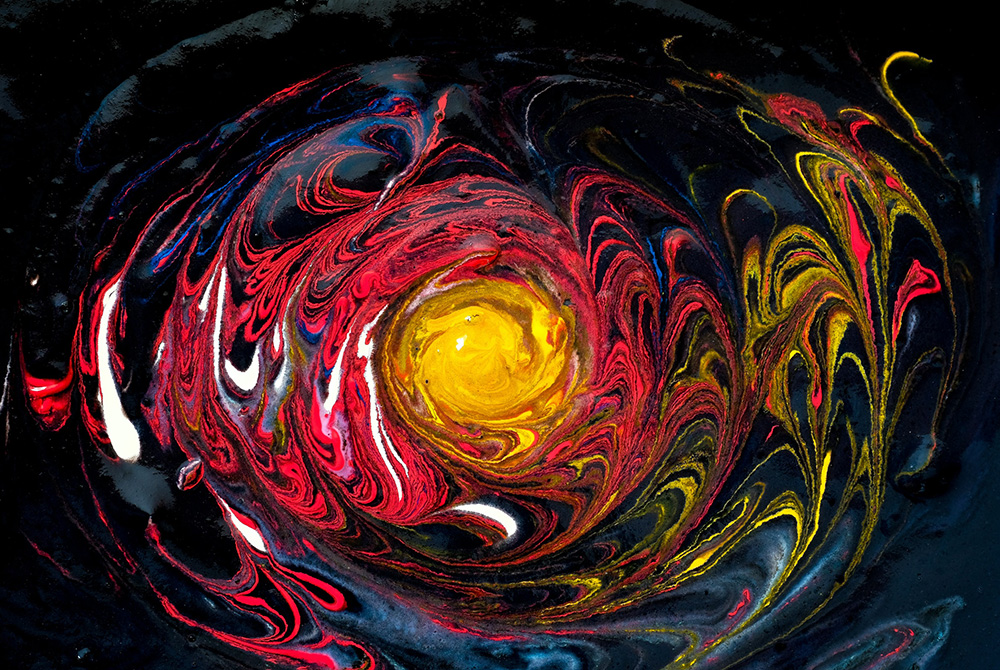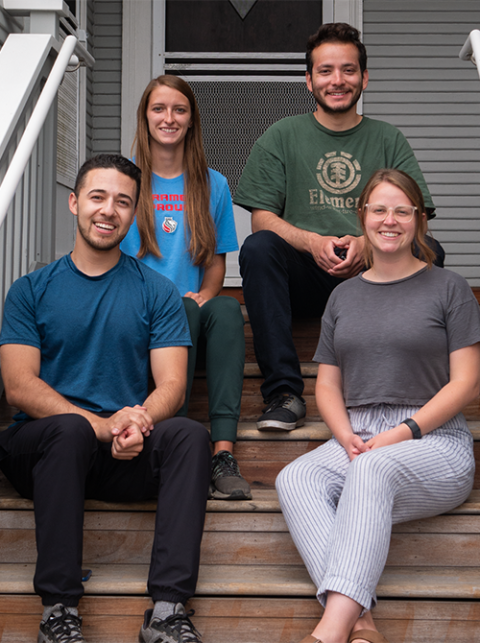
(Unsplash/Daniele Levis Pelusi)
"We can't be creative if we refuse to be confused. Change always starts with confusion: cherished interpretations must dissolve to make way for the new. Of course, it's scary to give up what we know, but the abyss is where newness lives." These words jumped out at me as I read a chapter from Margaret Wheatley's book Turning to One Another: Simple Conversations to Restore Hope to the Future (2002).
This book focuses on working together to create change. The words she wrote then seem like they were made for today. Historically there have been times when events and circumstances led to change and newness. Most of us can come up with a list of such events. Individually, as people, as a country, and as the world, we are living through one of those times.
Frustrating, scary and hopeful are only a few words to describe this time of living during a pandemic. Wheatley describes abyss as where newness lives. While this may be true, I imagine an abyss as a black hole. It is difficult to see the newness there and sometimes I would like to leave that newness and unknown right there in the abyss. I would like to say, "Well, that pandemic was an experience I do not want to repeat, and I want to go back to my life as it was."
It would be wonderful in some ways to just chalk it up to being an abyss of time that is now over. Sometimes I would like for my fairy godmother to wave a wand and magically transport me back to the end of February 2020 — before millions of people died and life was passing by, fairly uncomplicated.
The problem with this is that no matter how hard I try to make it happen, my fairy godmother will not appear. I will not magically find myself back in that time with everything the same as it was. I keep hearing from many people that soon we will be back to normal. We will not be back to how it was in February 2020 — if that is what they mean by "normal." The $10 million question becomes: What is life going to be like now?
Advertisement
Recently we have witnessed signs of change. The conviction of Derek Chauvin seems hopeful. However, there is a part of me that wonders — will we really begin to see change? Will years of oppression really give way to equity and justice for all? As an educator in this very complicated year, I have seen glimpses of change. I wonder if this year that turned education upside down will have an impact. Will students be welcomed back to school by administrators and teachers ready to make changes? Will education try to go back to the same that it was always like, or is it finally time to find a way to give every child a place of belonging, and truly leave no child behind? Will labor shortages lead to true living wage changes? Is it time to start paying people what they are worth?
All of these questions with no real answers lead me back to Wheatley as she says, "newness is there. It is waiting to emerge." That reminds me of a reflection activity I did recently with Mercy Volunteer Corps. I, along with other members of the board, were invited to reflect on and draw our "portals" as we have seen them in this current moment. I think of a portal as a gateway, contrasting with the image that comes to my mind when thinking of an abyss. A portal leads me to the possible.

This year's Sacramento and San Francisco Mercy Volunteer Corps volunteers took time out for a retreat at Moss Beach, San Mateo, California. (Courtesy of Mercy Volunteer Corps)
The members of the board did a beautiful job capturing what this year has felt like for them, and began to think about what is possible. Mercy Volunteer Corps is a good example of an organization that has adapted and changed from the beginning of the pandemic. They had volunteers they needed to bring home from Guyana, South America, and at the same time they had to support the volunteers in the states.
They welcomed volunteers in August 2020; those volunteers are just finishing their year of service. The volunteers included nurses, community organizers, teachers and people who served in various other roles. They touched lives and were changed themselves this year. Mercy Volunteer Corps could have decided not to welcome volunteers this year, because it was difficult and complex. Instead, they said yes to the unknown, and as an organization they are changed forever.
Mercy Volunteer Corps — like most of us — cannot fully go back to what was, and they are not fully into what life will look like in the future. The "portal" activity was a way of helping us board members start to think about the future. It was a beautiful, engaging way to visualize that abyss we were in and the gateway we are approaching.
What does your portal look like? What needs to be left behind and what will be brought with you into the unknown future?







